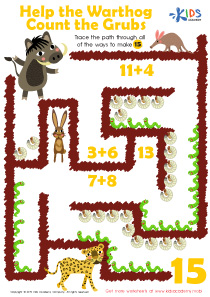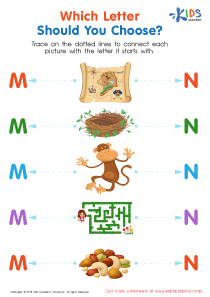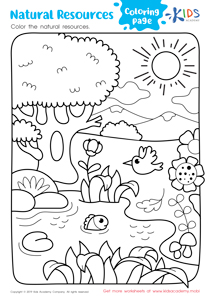Alphabet Recognition Normal Kindergarten Lowercase/Small Letters Worksheets
9 filtered results
-
From - To
Enhance your child's learning with our Alphabet Recognition Lowercase Worksheets, designed specifically for kindergarten students. These engaging, printable worksheets focus on small letter recognition, helping children familiarize themselves with the alphabet in a fun and interactive way. Each sheet features a variety of activities, including tracing, matching, and letter identification, fostering their cognitive skills and promoting early literacy. Showcasing colorful designs and child-friendly layouts, these worksheets capture young learners' attention while providing essential practice for mastering lowercase letters. Ideal for classroom or home use, our resources support a strong foundation for a lifetime of reading and writing success. Start your child's alphabet journey today!
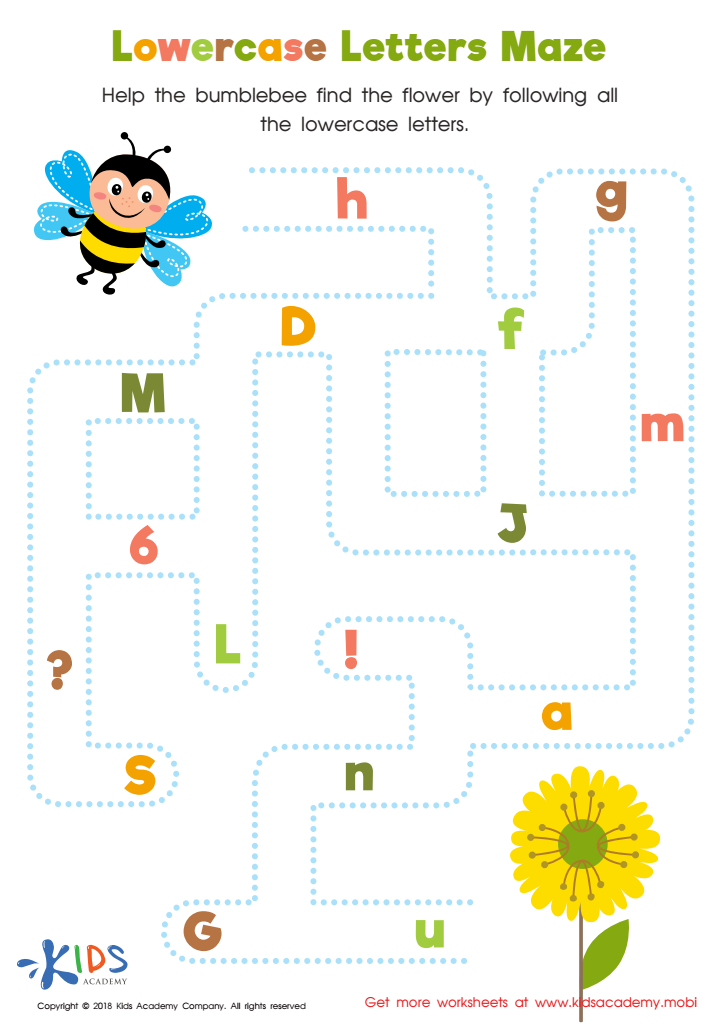

Lowercase Letters Maze Worksheet
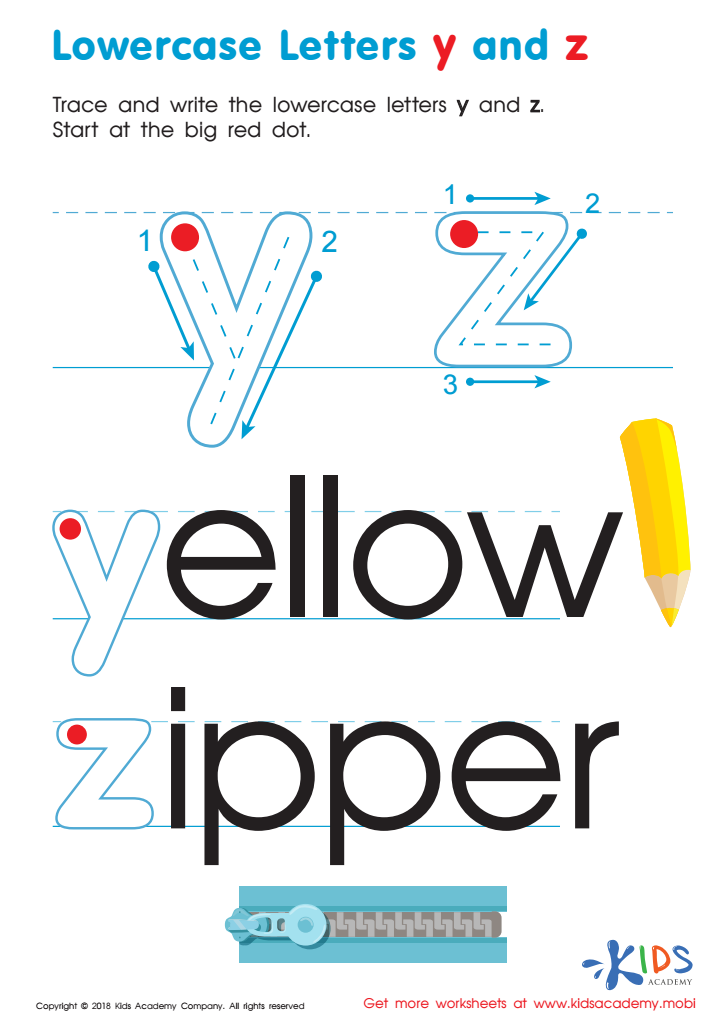

Lowercase Letters y z Worksheet
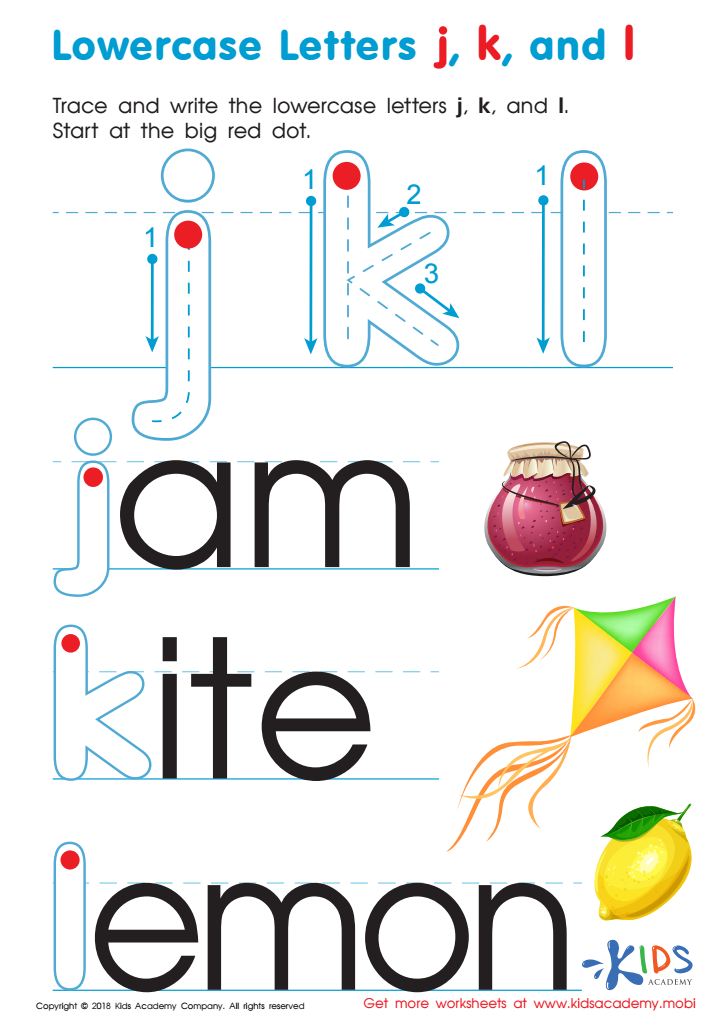

Lowercase Letters j k l Worksheet
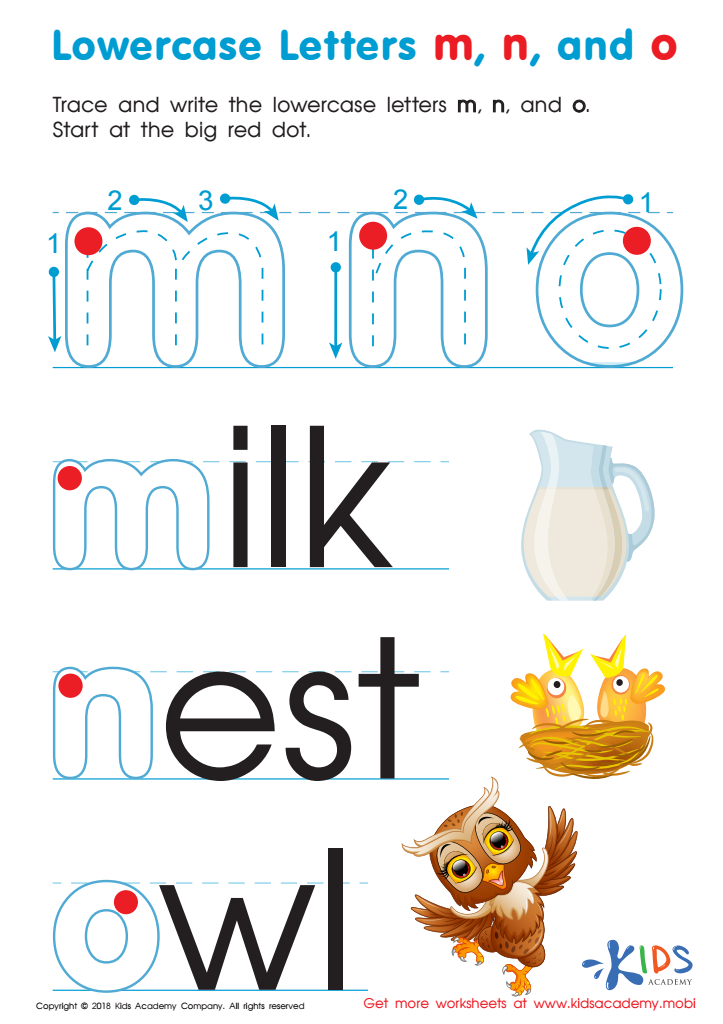

Lowercase Letters m n o Worksheet
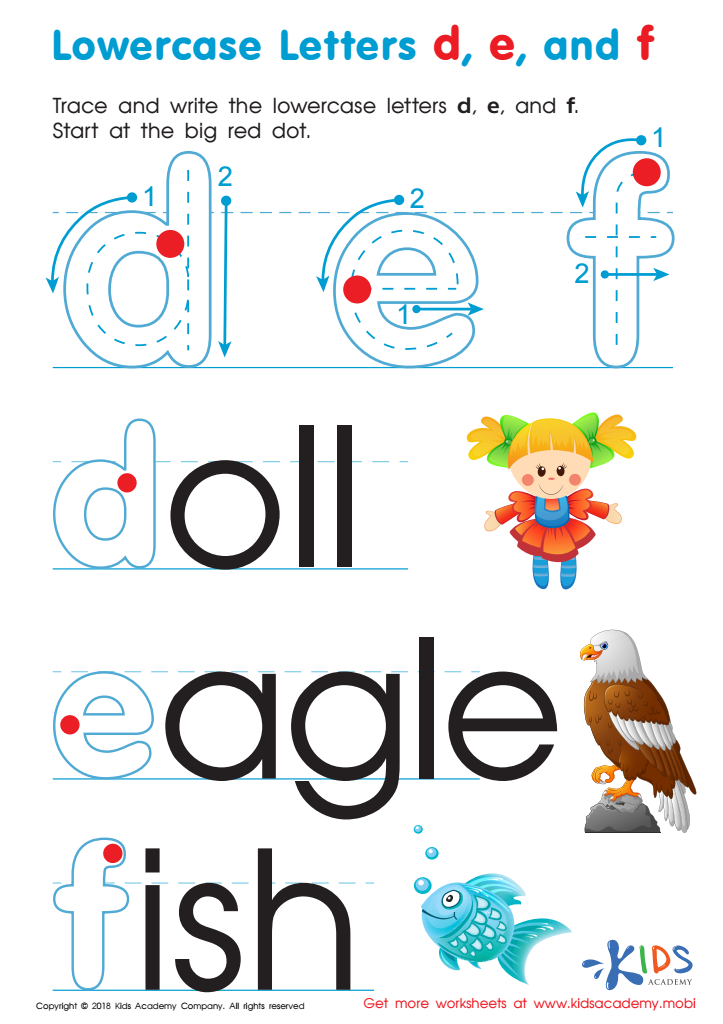

Lowercase Letters d e f Worksheet
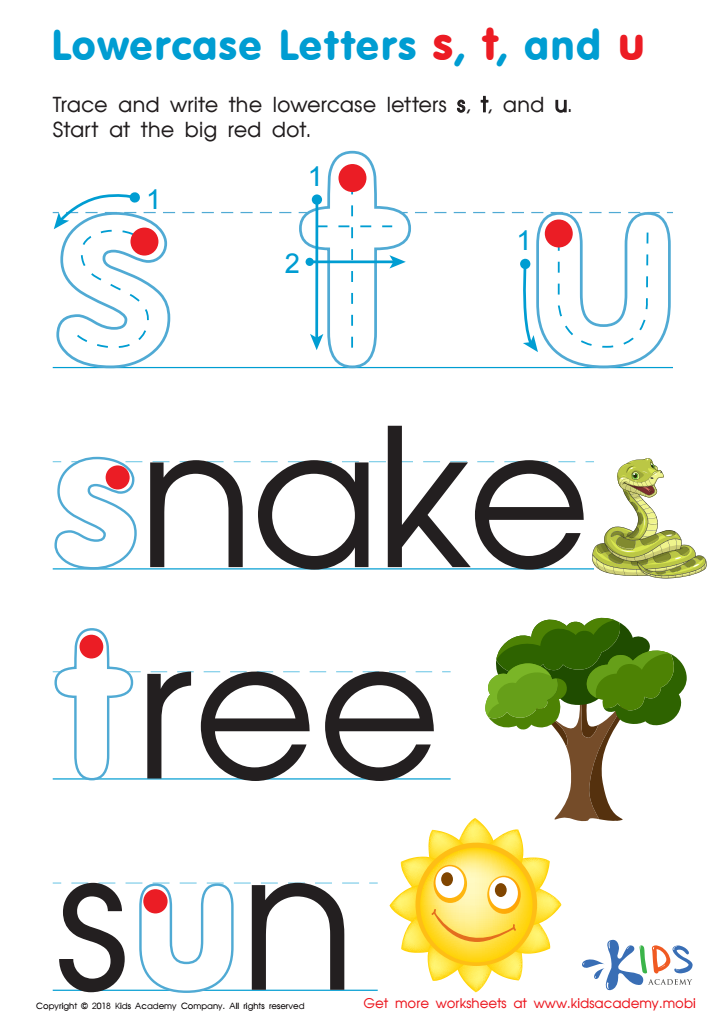

Lowercase Letters s t u Worksheet
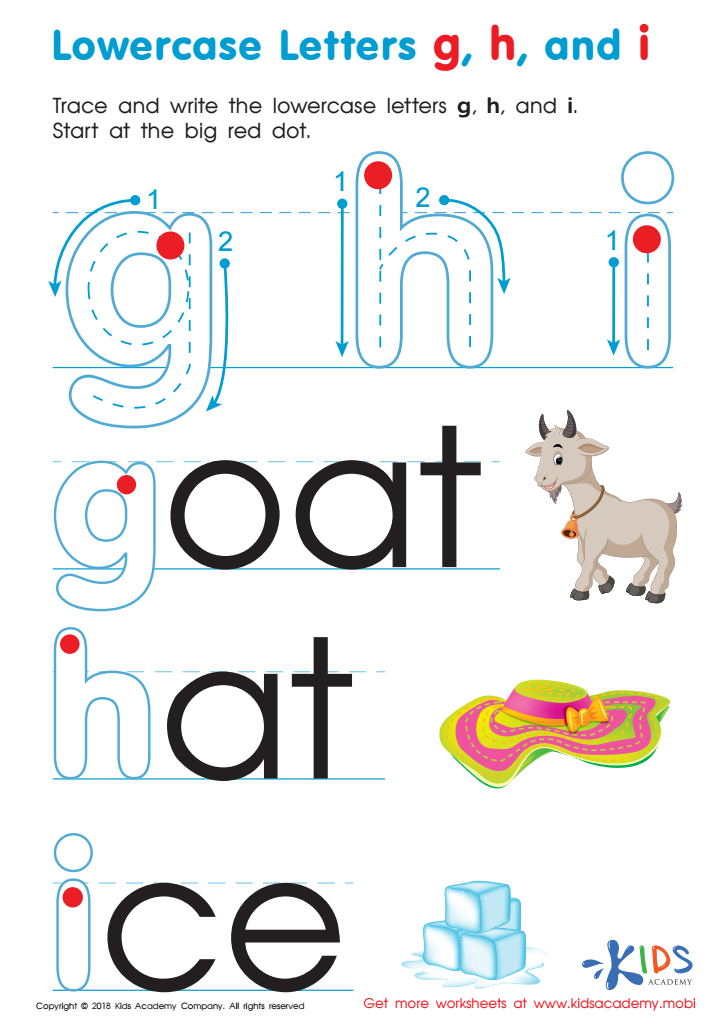

Lowercase Letters g h i Worksheet
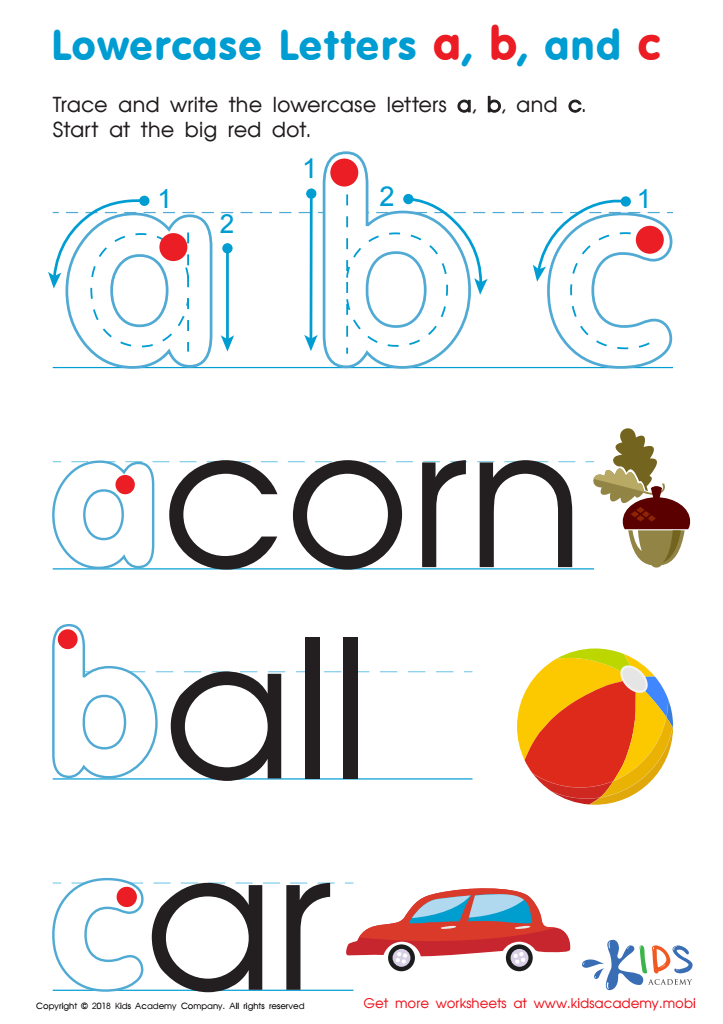

Lowercase Letters a b c Worksheet
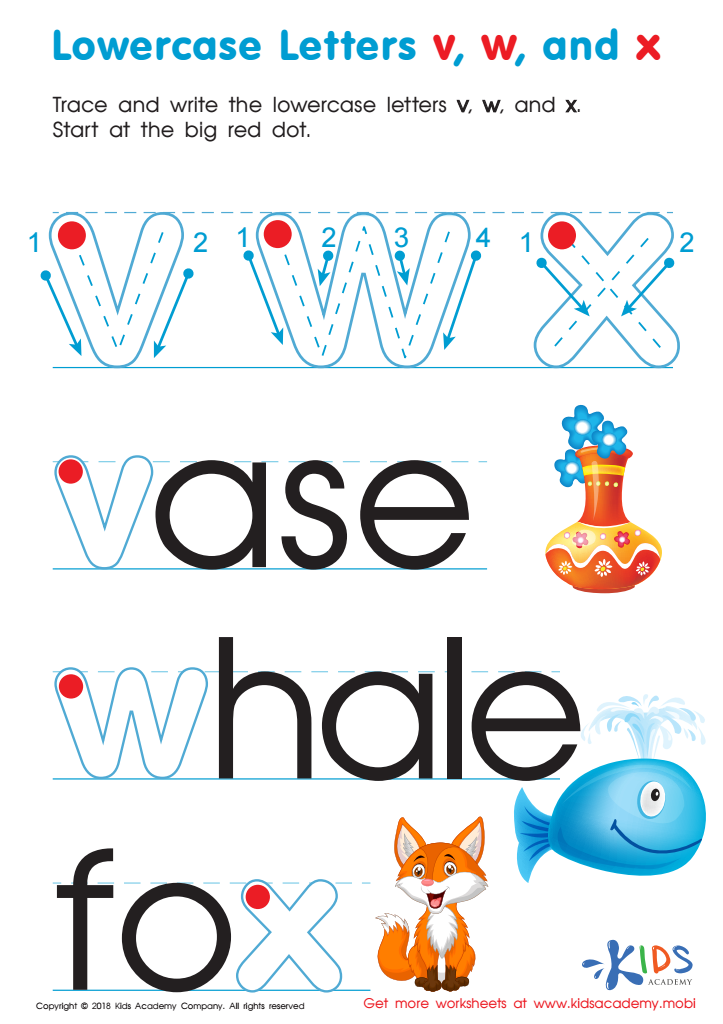

Lowercase Letters v w x Worksheet
Alphabet recognition, especially for lowercase letters, is foundational for a child's literacy development in kindergarten. Parents and teachers should care about this skill for several reasons. First, lowercase letters are the most commonly used in everyday reading and writing. Familiarity with these letters supports children in identifying words quickly, which is vital for reading fluency.
Second, understanding lowercase letters is crucial for effective communication and expression. As children begin writing, they naturally gravitate toward using lowercase letters for their names and other simple words. Mastery of these symbols allows them to articulate their thoughts better and fosters a sense of accomplishment.
Additionally, recognizing lowercase letters helps build phonemic awareness. Kids learn that letters correspond to sounds, laying the groundwork for decoding words as they advance in reading levels. This skill promotes critical thinking and problem-solving as children begin to play with language, experiment with new words, and understand their meanings.
Investing time and resources in teaching and reinforcing lowercase letter recognition enriches a child’s educational journey, creating a strong literacy foundation that will benefit them throughout their academic life. Involving both parents and teachers in this process further nurtures a supportive learning environment essential for young learners.
 Assign to My Students
Assign to My Students


